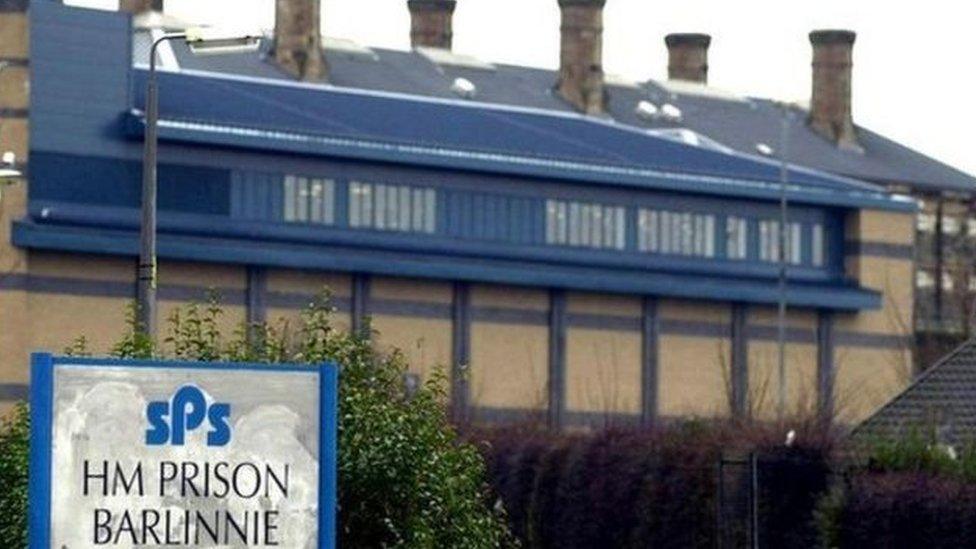Polmont young offenders institution culture blamed for suicide deaths
- Published
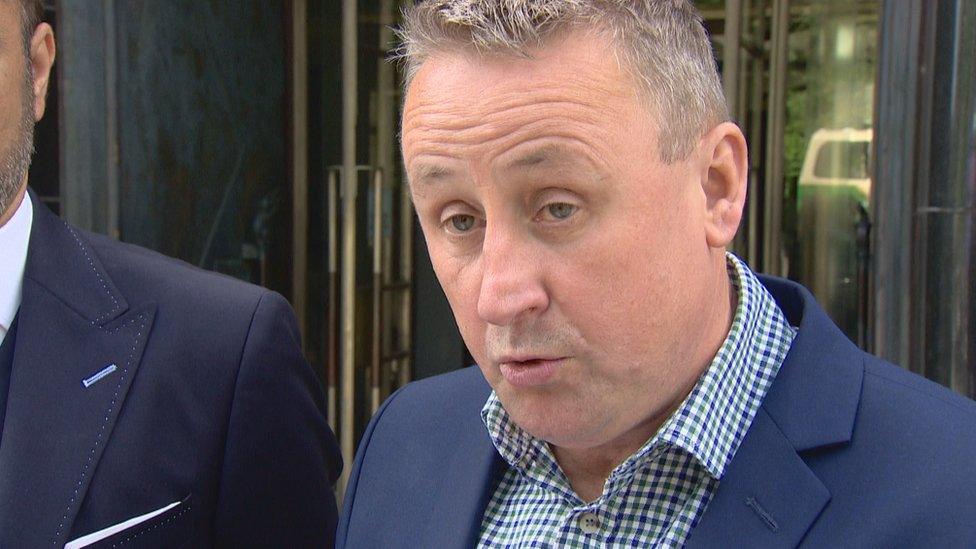
Stuart Allan spoke of the despair felt by some inmates
The culture at a young offenders institution was to blame for "unnecessary deaths" there, according to the parents of a young woman who killed herself.
Katie Allan, who was 21, took her own life at Polmont in June last year.
Her father Stuart said some inmates have a sense of despair and "their only escape is suicide".
He was speaking after he and his family met justice secretary Humza Yousaf as part of their campaign for reform.
They were accompanied by their solicitor Aamer Anwar, who also represents the family of William Lindsay, a 16-year-old who killed himself at Polmont four months after Ms Allan's death.
Katie was jailed for 16 months for a hit-and-run crash while drunk, in which a 15-year-old boy was knocked down.
The family's discussions with Mr Yousaf included a mental health review by HM Chief Inspector of Prisons which reported "systemic inter-agency shortcomings" at Polmont.
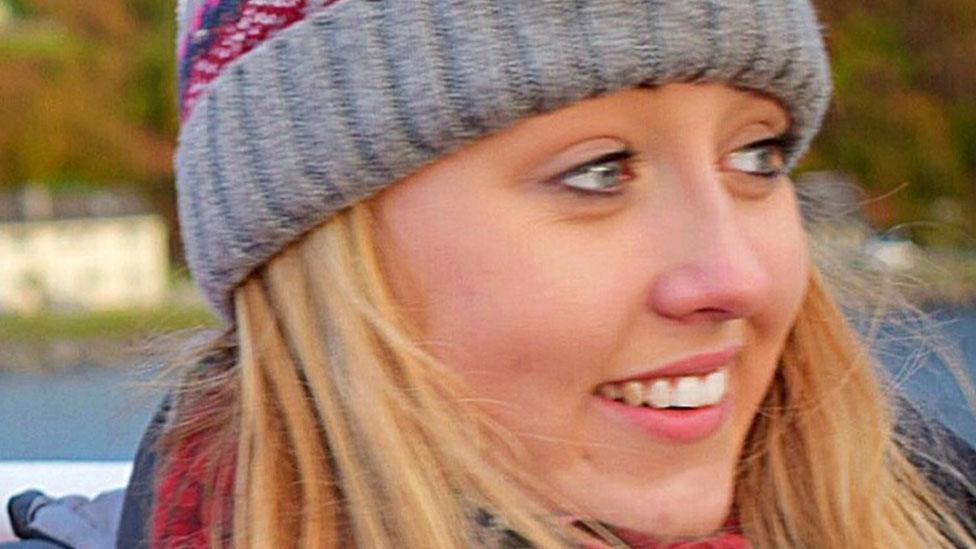
Katie Allan was jailed after admitting knocking down a teenage boy while drunk at the wheel of her car
Mr Allan said: "We thanked the cabinet secretary for his statement last week outlining some of the measures he is now putting in place.
"A pilot of in-cell telephones, a bespoke mental health strategy, the end of random and traumatising body searches for under 18s - all measures that will undoubtedly contribute to improvements.
"Despite this, we have serious concerns for the culture within Polmont - a culture which has led to unnecessary deaths. A culture that contradicts the perceived view of Polmont being 'a leading edge institution'."
He said many of the staff at the institution were doing good work.
"We know there are professional staff at Polmont. We know there are innovative opportunities, but what happens through the night, in the halls, and when staff levels are low?' he added.
"What happens is young people become so hopeless, so full of despair, that their only escape is suicide."
Mr Yousaf said he was grateful for the opportunity to meet the family and to keep them updated on progress.
"While suicides by young people in custody remain relatively rare, the loss of any life is one too many and none should be regarded as inevitable," said the minister.
"I recognise the profound effect that Katie's death has had on her family and many friends, as well as on prison and healthcare staff, and my thoughts are with all of those who have lost loved ones to suicide."
- Published2 April 2019

- Published10 November 2018
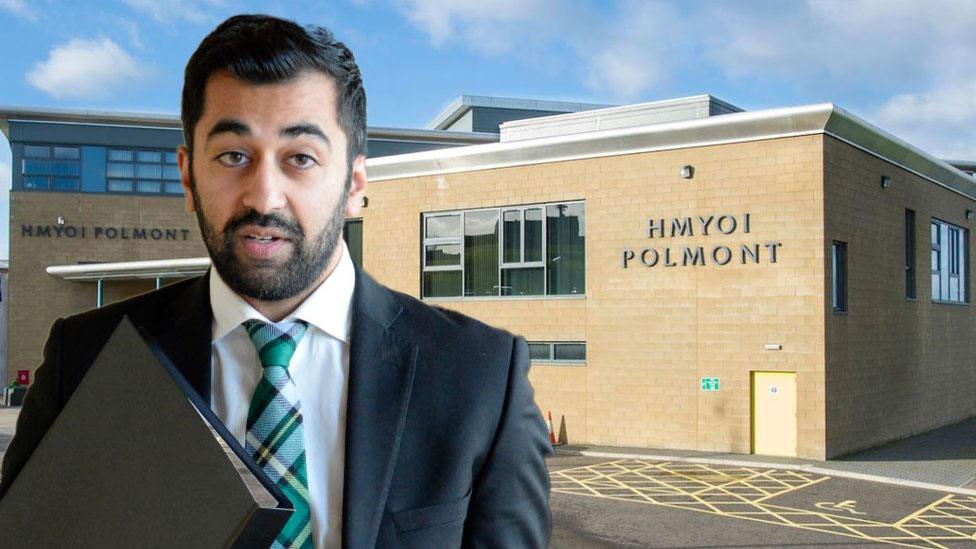
- Published23 November 2018
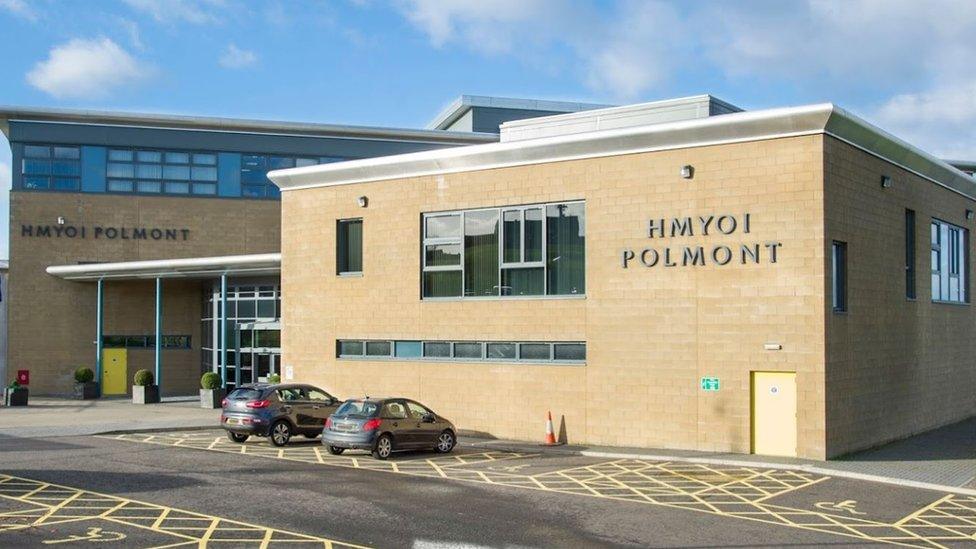
- Published25 October 2018

- Published9 October 2018
